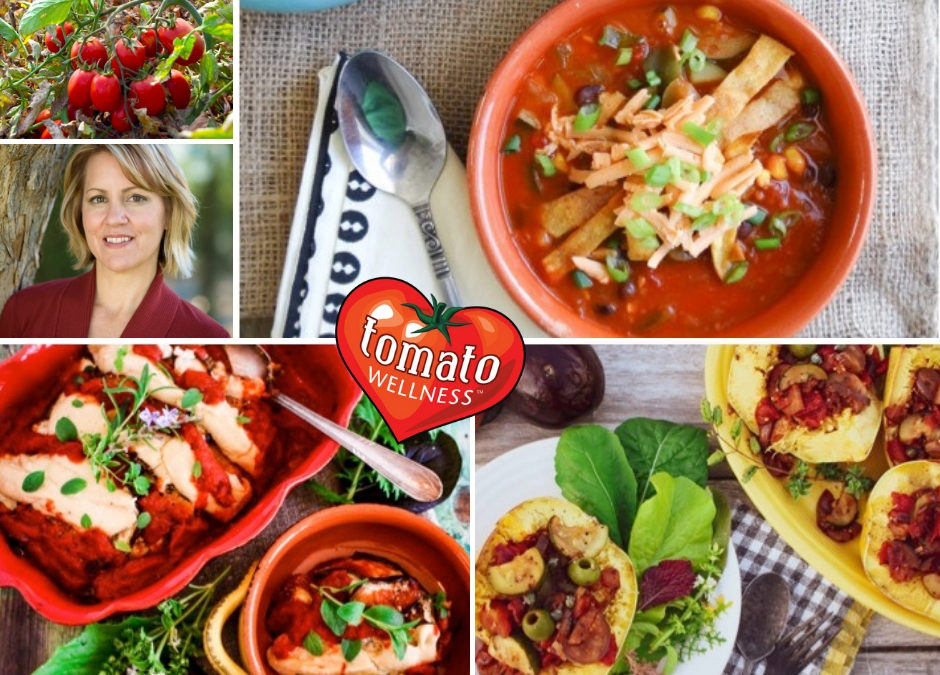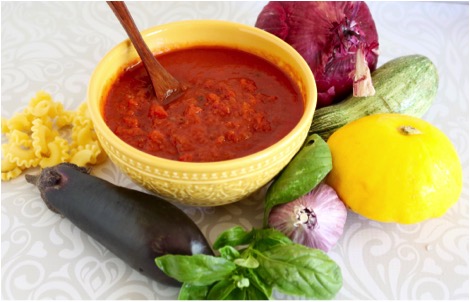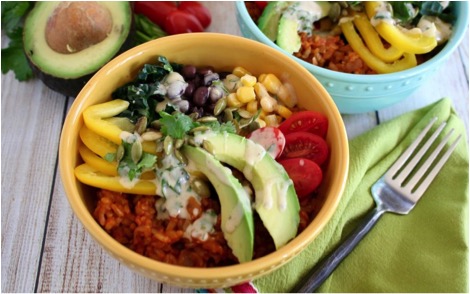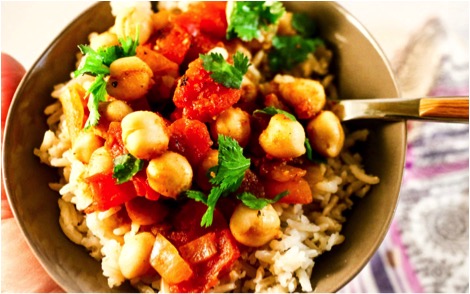
Top 9 Dietitian Tips for Enjoying Processed Tomatoes
Top 9 Dietitian Tips for Enjoying Processed Tomatoes
Top dietitians are sharing their favorite tips for enjoying more processed tomato products. Check out these Top 9 Dietitian Tips for Enjoying Processed Tomatoes, and enjoy a serving of tomato products today!
Every time you bite into a taco covered with salsa, a pile of pasta smothered in marinara, or steaming tomato soup, you are gaining health benefits linked with eating tomato products. Processed tomato products, including canned tomatoes, marinara sauce, tomato paste, salsa, and tomato soup, are rich in numerous health-protective nutrients, including fiber, potassium, vitamin C, and lycopene—the antioxidant compound that gives tomatoes their beautiful scarlet hue. And when tomatoes are cooked—as they are in processed tomatoes—the lycopene is even more available to your body, because the cooking opens up cell walls in the tomato plant to allow the lycopene to be absorbed into your body. That’s why eating a few servings of tomato products a week is linked with health benefits, such as reduced risk of prostate cancer, heart disease, hypertension, osteoporosis, sun-related skin damage, and more.
I asked top dietitians to dish up their favorite tips for enjoying more processed tomato products. Check out these Top 9 Dietitian Tips for Enjoying Processed Tomatoes, and enjoy a serving of tomato products today!
Spaghetti Squash with Ratatouille
Top 9 Dietitian Tips for Enjoying More Processed Tomatoes
- Go For Processed Tomatoes Over Fresh More Often. While nothing beats a fresh tomato on the vine during the highpoint of summer, there’s a lot to love about enjoying more processed tomatoes during the year. “Lycopene, an important plant nutrient, found to be protective against cancer in laboratory work, is more easily absorbed in processed tomatoes,” says Jean Lamantia, RDN. So, try to enjoy more processed tomatoes over fresh—you can even use canned tomatoes in dishes like bruschetta, sandwich fillings, and hummus.
- Get Creative with Tomatoes. There is just so much you can do with a single can of tomatoes! “Tomatoes are a great source of lycopene, an important antioxidant known to protect against cancer, and they’re good for blood pressure and heart health. They are also an excellent source of vitamin C. Processed tomatoes are very versatile and can be used in many dishes, like chili, pasta or pizza sauce, and soups,” says Janet Brancato, MS, RDN of My Nutopia.
Chipotle Tomato Rice Power Bowl
- Load Up on Potassium. One reason tomatoes may be good for lowering blood pressure is their stash of potassium. “Tomatoes are a good source of potassium, a nutrient needed to help lower blood pressure. They’re also part of a heart-healthy Mediterranean diet,” Lisa Andrews, MEd, RD, LD, owner of Sound Bites Nutrition. So, load up on more potassium-rich tomato products in recipes, such as soups, stews, and rice dishes, like this recipe above.
- Choose Low Sodium Tomato Products. Along with potassium, it’s a good idea to limit your sodium intake for healthy blood pressure levels. “I recommend using low sodium canned tomatoes. Potassium helps to offset high sodium intake, a notable problem in today’s highly processed food diet. High sodium intake is blamed for the increasing incidence of high blood pressure,” says Wendy Rice, RDN. So, go for lower sodium tomato products, such as reduced sodium tomato juice, marinara sauce, and salsa.
- Fight Free Radicals with Lycopene. One of the benefits of tomato’s antioxidant compounds is that it fights oxidative stress, which protects you against chronic diseases. “Tomatoes are packed with vitamins C, A, and K. Tomatoes also contain the antioxidant lycopene, which helps your body fight damaging free radicals. In some studies lycopene has demonstrated anti-cancer activity. Processing tomatoes makes the lycopene more easily absorbed, so tomato sauce, salsa, and soups are great ways to consume them,” says Wendy Kaplan, MS, RDN, CDN of Food 4 Health RD.
- Increase Your Produce Intake with Processed Tomatoes. Every time you feast on tomato products in a recipe, you are powering up your all-important vegetable intake. “The term ‘processed food’ is charged with so many emotions, unfortunately fear usually tops the list. I encourage my clients to take a step back and look at the bigger picture. We know fruits and vegetables protect our bodies against disease and we know Americans don’t eat enough fruits and vegetables; canned tomatoes offer an affordable and convenient way for us all to increase our produce intake and improve the nutrient density of our diets. Pick up a can or two next time you’re at the grocery store, you can even find “No Salt Added” varieties that are perfect for mixing into your favorite dinner recipes,” says Lindsey McCoy, RD, CSSD. Find her on Instagram @cravenutritionrd.
- Stock Your Pantry with Processed Tomatoes. Make sure to always have a few cans of tomato products rolling around in your pantry, for easy, instant meal solutions. “For home kitchens, ‘preserved’ tomatoes are shelf stable, affordable, a great ingredient as part of a quick meal, a beautiful red color, count as a vegetable, and are nutritious AND delicious. So in addition to nutrition, don’t forget how many wonderful dishes contain preserved tomatoes!” says Cathy Foreman, MS, RDN, LD.
- Cooking Tomatoes Counts! The power of cooked (or processed) tomatoes, as in tomato products, is real. “You need to break the cell wall down to better access the lycopene. Cooking and crushing tomatoes makes it accessible. Watermelon is also very high in lycopene, but we don’t absorb it as well because we typically don’t cook watermelon. You’ll get more lycopene from the ketchup on your veggie-burger, than the piece of watermelon at a barbecue,” says Tina Marinaccio, RDN. So, go ahead and pile on those tomato products on your next sandwich or veggie-burger.
- Boost Fertility with Lycopene. More research links plant-based nutrition with increased fertility. “I recommend tomatoes, whether they are processed or fresh, to my male clients struggling with infertility. Lycopene intake is related to improved male fertility parameters, so depending on the specific condition, I will encourage intake of lycopene-rich foods like tomato products,” says Lauren Manaker MS, RDN, LD. It’s a perfect time to enjoy more recipes featuring tomatoes, such as this Chana Masala above.
5 Ways To Use Canned Foods In Your Instant Pot from @DWNutrition and our friends at @CannedFoodFan https://t.co/ElbeS7xb9N
— Tomato Wellness (@TomatoWellness) January 13, 2019








Recent Comments